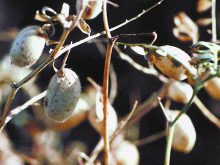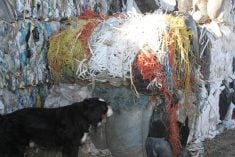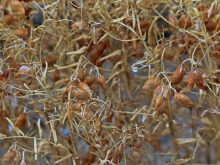Ottawa has proposed changes to the Canadian Wheat Board Act that would set a production threshold for eligibility to vote in CWB elections and eliminate tens of thousands of voters.
The government has the support of the CWB board of directors for the change, although the lobby group called Friends of the CWB denounced it as an undermining of the control of farmers who use the board.
Under Bill C-27 tabled in the House of Commons May 14, eligible voters in wheat board elections must have produced at least 40 tonnes of one of the crops listed in the CWB Act (wheat, barley, oats, rye, flax, rapeseed and canola) during the previous three planting seasons.
Read Also

Canadian farmers need level playing field for regulations – says Minister MacDonald
Federal agriculture minister Heath MacDonald is urging the Canadian Food Inspection Agency and the Pest Management Regulatory Agency to speed up their decision making.
The bill also would streamline the government system for approving initial payment levels after grain is delivered, cutting Treasury Board approval out of the picture.
“Western Canadian farmers deserve effective governance and they deserve to get paid as quickly as possible,” agriculture minister Gerry Ritz told a May 14 news conference.
“This bill will clarify that hobby farmers, retired farmers and farmers who haven’t produced significant amounts of grain in recent years should not be deciding who directs the Canadian Wheat Board.”
Ritz said he hopes the legislation can get through Parliament in time to be in effect for the next CWB election set for autumn. To do so, the government must make it a priority for House debate time and the opposition must agree not to obstruct its passage.
Ritz said that since the wheat board supports the legislation, he would be shocked if opposition MPs opposed it.
CWB chair Larry Hill said the CWB’s board of directors passed a motion supporting the legislation.
“This does recognize that the government is entitled to legislate on the voters list and we support the proposal.”
Neither the government nor the CWB said they knew what effect the 40-tonne production rule would have on the voters list, but a senior federal official said years ago that a 2005 proposal to limit voters to those who had delivered at least 40 tonnes of grain to the CWB during the past three growing season would eliminate 40 to 50 percent of eligible voters.
Reaction from the farm community was divided.
Grain Growers of Canada said the changes would make CWB director elections “fairer and more legitimate.”
The Canadian Federation of Agriculture said that since the CWB supported C-27, so would CFA.
The National Farmers Union and Friends of the CWB, which has taken Ottawa to court over an earlier attempt to change the rules by regulation, said the legislation was part of a broader Conservative plan to undermine farmer control of the CWB by denying the vote to some farmers with lower production who depend on the board and help pay its expenses.
Former NFU president Stewart Wells, a FCWB leader, said in an interview no other farm group allows producers who do not grow their crop a say in their elections. Under these rules, flax or canola growers would have a say in the direction of the board.
Grain Growers executive director Richard Phillips, who worked for then-Liberal CWB minister Reg Alcock when the 2005 report was prepared, countered that producers of all the non-board grains listed in the CWB Act must grow grain as part of their rotation so virtually all would have a direct stake in CWB decisions.
The 2005 review of the CWB electoral process recommended a threshold of 40 tonnes delivered to the board over the current and previous two years. Ritz opted for 40 tonnes produced, rather than delivered, and Wells said it makes a world of difference.
“You have people who never use the board voting,” he said. “Is that fair?”
FCWB leader and NFU activist Butch Harder from Manitoba said the CWB vote to support the legislation was led by government-appointed directors. “The majority of farmer-elected directors opposed it.”














